Student mental health still at forefront despite distance learning
What are Schools Doing for Mental Health during the Pandemic?
An eleventh-grade boy awakens after a troubling evening. He had experienced another one of his late-night panic attacks. After rubbing the sleep from his eyes and wishing he could stay in bed for eternity, the boy got dressed and rode the bus to his high school, taking a deep breath before entering the building. A few periods passed and he was beginning to feel anxious again. Trudging toward his math class, his eyes peered at a sign adjacent to his home office door, “Feeling Anxious? Here’s what to do…” Shortly after he skimmed over the suggestions on the poster, he found himself seated in his guidance counselor’s office.
According to the National Association of School Psychologists, 60% of students do not receive the mental health treatment that they need due to stigma and lack of access to services. Yet, schools are an ideal place to provide mental health services to help students like the one with the story above. Students are constantly immersed in their school environment, and having adequate mental health resources can manifest a positive development and overall wellness.
In spite of that, because of the coronavirus pandemic, there are concerns that students may not be able to receive the sufficient services that they need.
“If you look at the prevalence of kids who have school adjustment difficulties and mental health problems, it was too high before the pandemic—and it’s going to be higher now,” says Roger Weissberg, PhD, a professor emeritus of psychology at the University of Illinois.
However, North Penn High School guidance counselor, Mrs. Christine McCreary, and school psychologist, Dr. Michael Ramsteck, feel confident in the mental health services that they help provide. Even though their circumstances have changed their jobs and dedication to helping students remain the same.
“As a counselor, my job is to determine the level of need and refer students to other agencies based on whatever the issue might be,” McCreary noted..
Ramsteck is a part of North Penn’s Student Assistance Program, which includes several teachers, counselors, and administrators – a group who works to bridge a gap to those students identified as being in need of attention or assistance.
“I am a part of that and we sometimes will connect students to mentors in the building or if we feel like we may need some more intense services we will do that,” he said.
Although resources are available, some students may feel uncomfortable reaching out for help, especially to a stranger, but both Ramsteck and McCreary assure that they are open to listening.
A lot of times when I have a student who is struggling their friends are the ones who come to see me first and we rely heavily on you guys to speak up when your friends are hurting.
— Mrs. Christine McCreary - NPHS Guidance Counselor
“It’d be very scary to go to a person you don’t know. A lot of times when I have a student who is struggling their friends are the ones who come to see me first and we rely heavily on you guys to speak up when your friends are hurting. When I can pull somebody in and say you have a friend who is really worried about you, all of a sudden it just pours out,” McCreary explained.
“They may be scared to ask for help but once someone has offered it to them, it can be this very relieving experience. Aside from working at North Penn, I also work at private practice, one thing that I always find is being really open and honest as much as you can,” Ramsteck said.
Even though people have become more candid regarding mental health, many years ago this was not the case.
“I think society has changed a lot; there’s a lot more education, a lot more services. I think North Penn’s current school board has been very supportive, they have definitely put it at the forefront of a lot of the issues right now. While we do only have that in health for a unit or two, I think we are moving in the right direction,” McCreary reflected.
“There’s still work to be done. I was in high school fifteen years ago, and unless there was a big issue, it wasn’t talked about. I think there has been a big push in recent years to try to normalize mental health,” Ramsteck explained..
Despite the present openness about mental health, schools not being open has altered how mental health resources are distributed to students.
Covid is a situational health concern and there is such a thing as situational depression or anxiety. I think that’s why, as a country, people are trying to foster resiliency and are finding ways to connect with people and get that support
— Dr. Michael Ramsteck- NPHS Psychologist
“Covid has changed the way school works a little bit, but your generation is way more used to having video chats. I think in some ways that has helped. Covid is a situational health concern and there is such a thing as situational depression or anxiety. I think that’s why, as a country, people are trying to foster resiliency and are finding ways to connect with people and get that support,” Ramsteck said.
Support such as this exists all throughout North Penn. The Student Assistance Program, or SAP, allows students to report concerns in a non-threatening way and provides the students with mentors as well. Ms. Rebecca Leatherman, another guidance counselor who works on the second-floor C-pod, also runs support groups for grief, substance abuse, anxiety, and depression, as well as Rise, a support group that discusses healthy emotional boundaries and relationships for teenagers.
Although we have been apart during the pandemic, Mrs. McCreary and Dr. Ramsteck wish to reach out with a message for all students.
“They are not alone, it is okay to ask for something,” said Dr. Ramsteck.
“Help is happening,” said Mrs. McCreary.
If you or someone you know needs immediate support or is experiencing a crisis, Montgomery County Mobile Crisis Support is available. Their 24/7 hotline is 1-855-634-4673.
Teen Talk Line: Call 866-852-5856, or Text 215-703-8411
Sources
“School-Based Mental Health Services.” National Association of School Psychologists (NASP), www.nasponline.org/resources-and-publications/resources-and-podcasts/mental-health/school-psychology-and-mental-health/school-based-mental-health-services.
Weir, Kirsten. “Safeguarding Student Mental Health.” Monitor on Psychology, American Psychological Association, 1 Sept. 2020, www.apa.org/monitor/2020/09/safeguarding-mental-health.


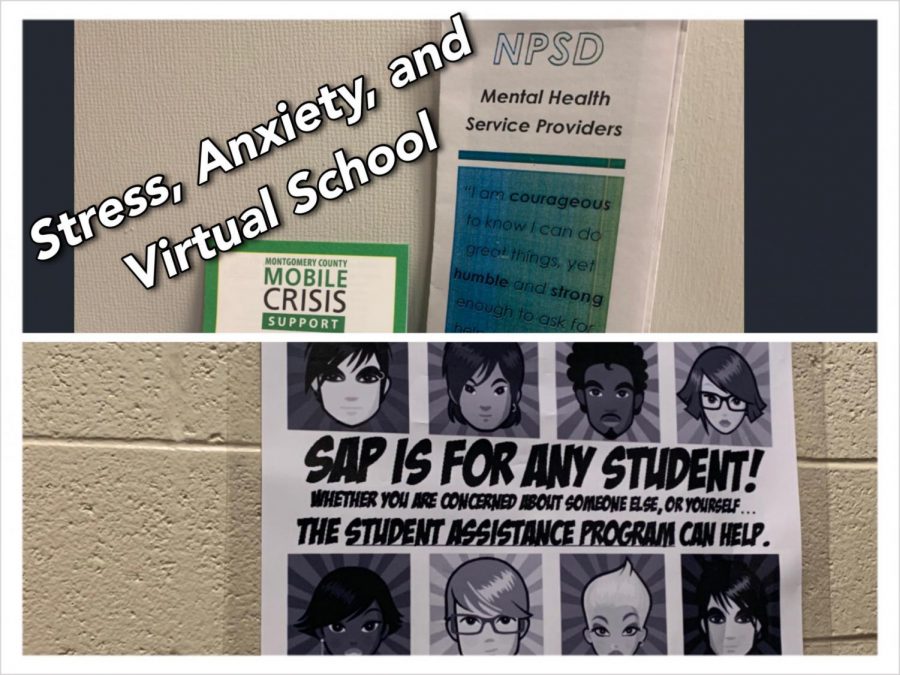

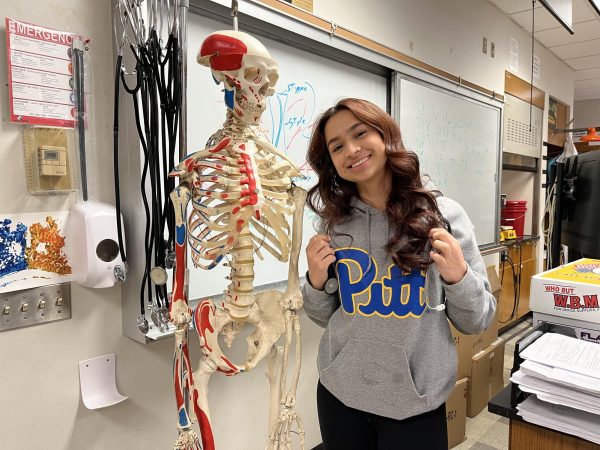
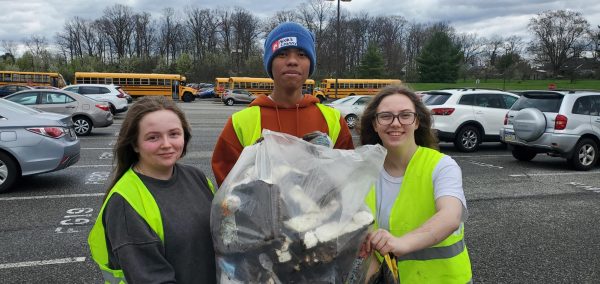
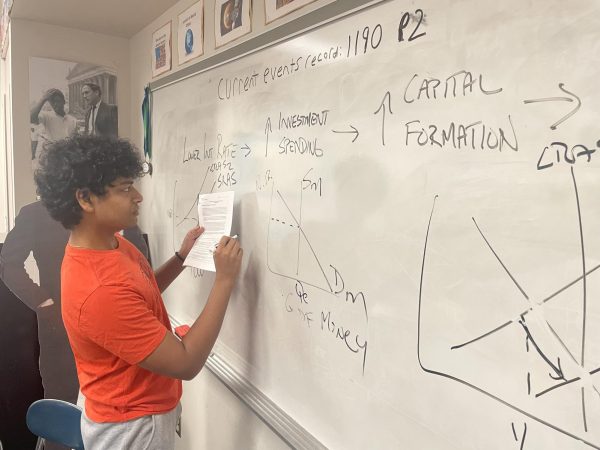
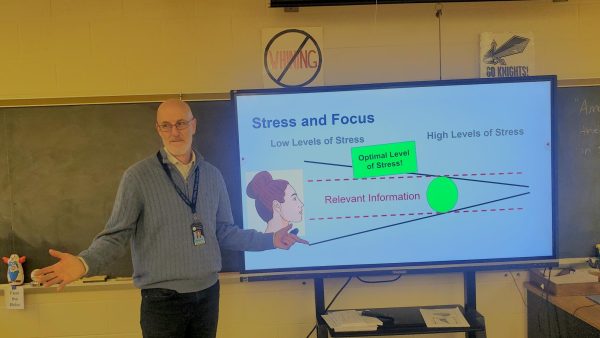
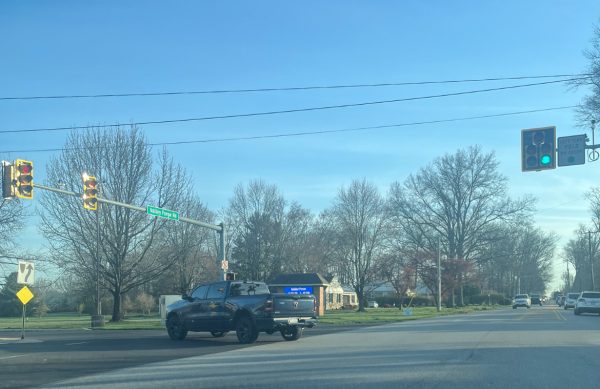

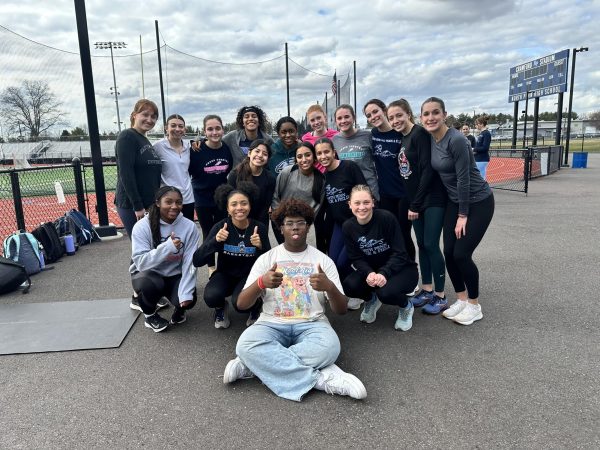
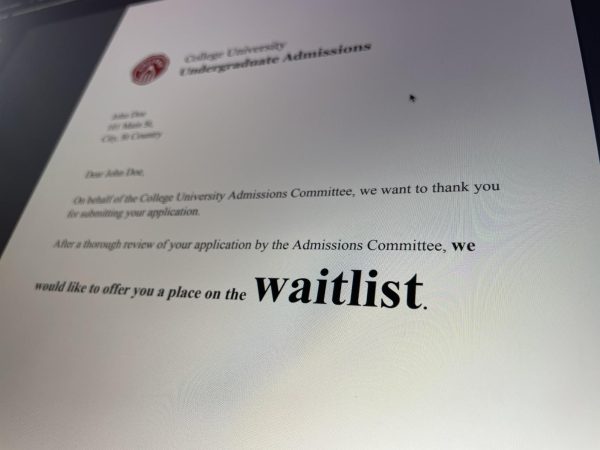
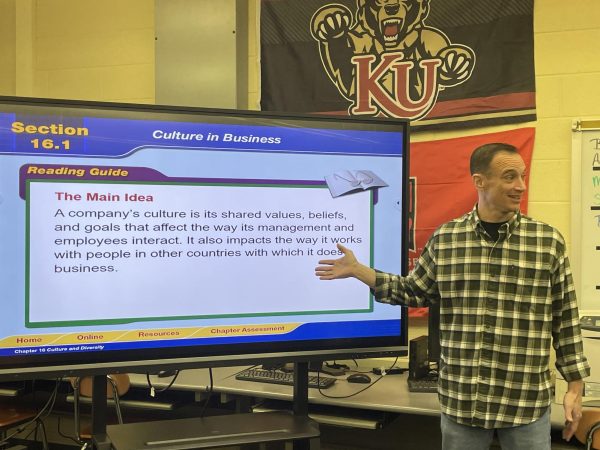
Harold A Maio • Jan 12, 2021 at 2:58 pm
—due to stigma???
Really?? It is due to “stigma” not to those directing it? Not due to those taught and teaching us to direct it?
History makes it very clear that it is due to those directing it. Please examine that history.
Harold A Maio
Dr. Hall • Jan 12, 2021 at 10:35 am
I love everything about this article. First, it acknowledges how difficult the struggles are today for your kids. We are asking a lot of them, and Emma does a great job in getting us to examine the impact. Second, it highlights North Penn’s available programs and two of our most respected professionals who are there for our kids every day. Lastly, it provides a number of what to do if you need help. In my opinion, American journalism too often focuses on extreme, heart breaking cases. It is unusual that the media provides resources for support. Congratulations to Emma and the Knight Crier for doing that. You may very well be saving lives.